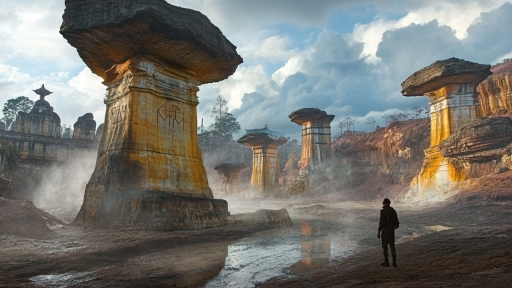Venus’s Watery Past Questioned
For decades, scientists speculated that Venus, Earth’s neighboring planet, might have once had vast oceans like our own. This theory painted a picture of a habitable Venus before it became the sweltering inferno we see today. However, new research from the University of Cambridge delivers evidence suggesting Venus was likely a dry and scorching planet from the very beginning.
A Dry Interior
The study investigated the water content of Venus’s atmosphere and volcanic activity. Researchers discovered that volcanic eruptions on Venus release minimal water vapor compared to Earth, indicating a planet with an exceptionally dry interior. Without enough water vapor to form clouds or oceans, the research concludes that Venus likely never hosted liquid water in its 4.5-billion-year history.
A Planetary Contrast to Earth
Understanding Venus’s persistent dryness offers a stark contrast to Earth’s water-rich environment. The findings highlight the unique conditions that allow Earth to sustain life, emphasizing how water is a critical factor. This research could also refine the search for habitable exoplanets, as it suggests planets with Earth-like conditions are more likely to support life.
Lessons for the Search for Life
Venus’s history underscores the fragile balance of factors required for a planet to sustain water—and by extension, life. As scientists continue studying Venus, they’re also learning to identify exoplanets with conditions that mirror Earth’s. This discovery is another step toward understanding the uniqueness of life on our planet and the possibility of finding it elsewhere in the universe.





